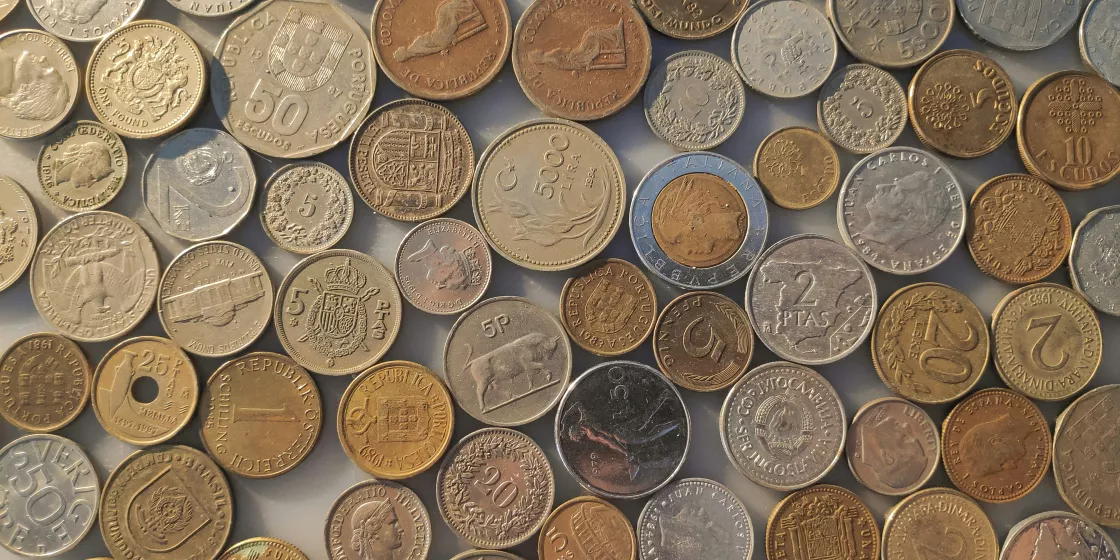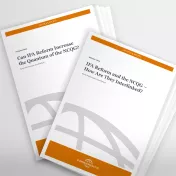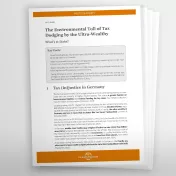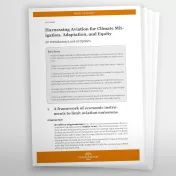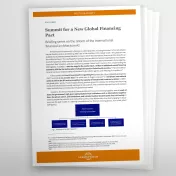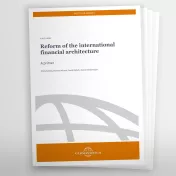The international community of states has been hit by a wave of enormous challenges in recent years, ranging from the climate crisis and pandemics to growing global tensions. One of the most important factors for many countries to overcome these is money. Public financing to overcome crises is more important than ever. This applies especially to global goods such as those needed to combat the climate crisis.
In the coming years, all countries will have to invest large sums in climate-neutral technologies, in measures to protect their populations from the consequences of climate change, or in reconstruction after extreme weather events. At the same time, the budget for development policy is shrinking in many donor countries. In this context, new ideas are needed on how enough money can be channelled into climate protection worldwide. After all, what we invest now in climate protection and resilience as a global community will pay off many times over in the future.
Many countries in the Global South lack financial leeway. Funds for an ambitious climate policy and a sustainable development agenda are shrinking. Some of these countries spend more on servicing their debt than is available for education and health. What is more, the current financial architecture reinforces the existing power imbalance between the Global North and South. For example, rich industrialised countries received much more financial support from the International Monetary Fund (IMF) in the form of so-called special drawing rights (SDRs), than countries in the Global South.
This situation often prevents exactly these countries from implementing necessary climate protection measures. Although many of them are willing to rely on renewable energies or to better protect the local population from droughts and floods, they are often denied access to the necessary funds.
Reform of the international financial architecture is a must
An important approach to solving this problem is reforming the international financial architecture. This includes various institutions such as the IMF, the World Bank and other bilateral and multilateral development banks (Multilateral Development Banks, MDBs). Some of these institutions were established as early as 80 years ago. Their modus operandi is therefore not geared to a world that is simultaneously confronted with a long-term crisis such as global climate change and several additional acute crises within short time intervals.
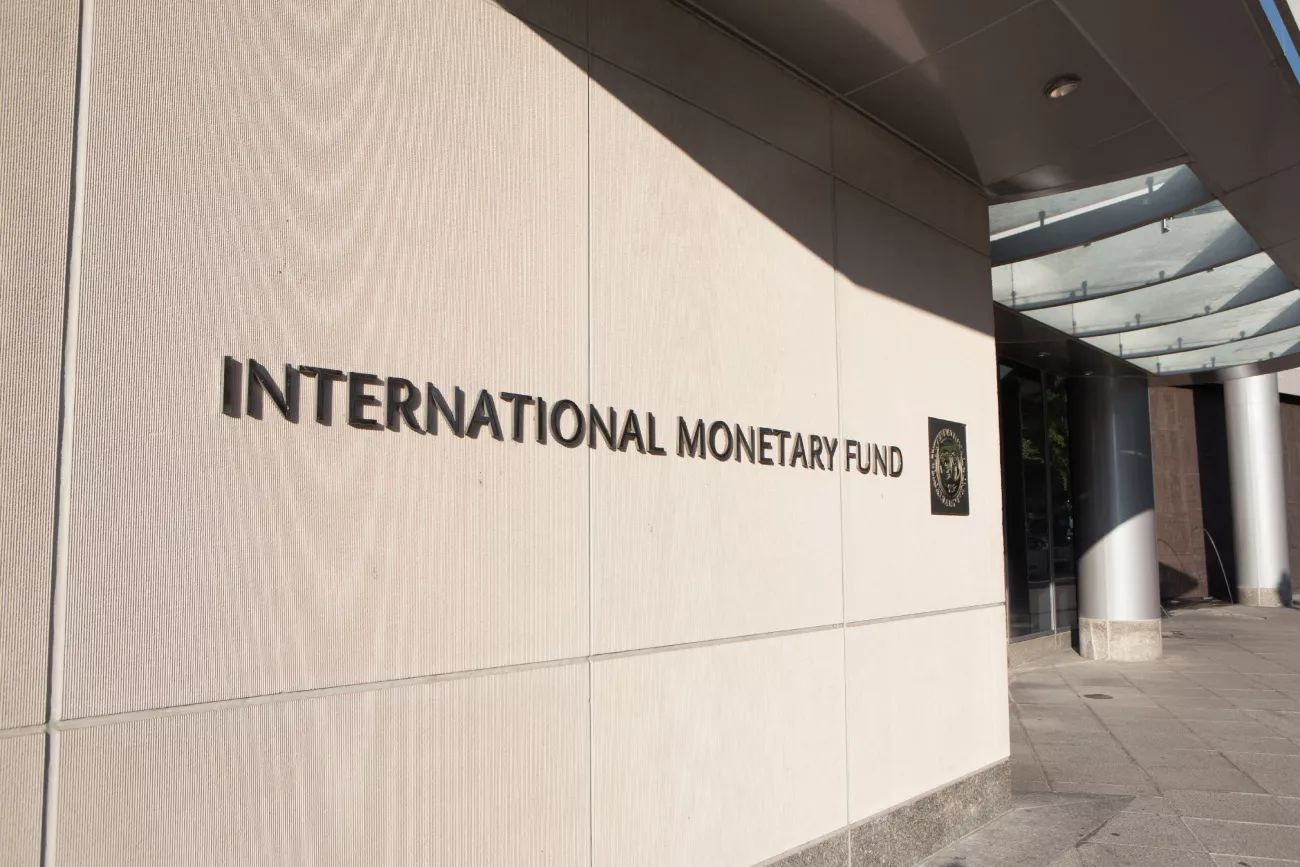
Putting this system on a new footing and tapping into new sources of finance will help to provide additional financial resources for climate and development financing. The countries of the Global South, in particular, will benefit from such sustainable and fair financing instruments, which mitigate the economic crisis and reduce over-indebtedness. They will be given the opportunity to tackle the climate crisis appropriately, for example by protecting themselves better against the effects of extreme weather events caused by climate change. This will reduce the costs of crisis management and reconstruction worldwide, also for Germany.
Shaping monetary funds fairly, facilitating investment in the future
One way to make the financial architecture fairer concerns the IMF. Its tasks include maintaining the stability of the global economy and supporting member countries with temporary financial assistance. For this purpose, the SDRs, a reserve currency, can be used to help states in times of crisis. Large amounts of these SDRs were last distributed in 2021. Rich industrialised countries like Germany have received a large share of these, but are, however, not using these rights. At the same time, countries in the Global South would use a significantly higher share if they had the access rights. Germany could give its SDRs to the IMF or MDBs, which could use them to enable additional climate action in countries in the Global South.
New taxes for better climate protection
Another issue of justice concerns the contribution of individual population groups to the climate crisis: in 2019, the richest one per cent of the world's population was responsible for around 16% of global CO2 emissions, which is roughly equivalent to the emissions of the poorer two-thirds – around five billion people – taken together.
Here, too, those who contribute most to the climate crisis should pay for climate protection and adaptation. This could be addressed by means of innovative taxes and levies, such as on travel by private jet, which only the super-rich can afford and which is particularly harmful to the climate. In Germany alone, such a tax could generate 263.8 million euros in additional tax revenue per year. This money could be channelled specifically into climate protection measures. Other conceivable levies include those that follow the polluter pays principle. These could specifically target companies whose business model is associated with high greenhouse gas emissions and that have made record profits, while socialising the costs they incurred.
Our work on the IFA reform
Both of the above examples are about tapping into innovative sources of climate finance. This goal is a key focus of Germanwatch's work on reforming the international financial architecture. We are actively working to ensure that such new sources of finance are identified and utilised as quickly as possible. We have now established ourselves as a strong voice in German civil society in this field. Our work focuses on three main areas:
- Reform of the International Monetary Fund and other financial organisations: Although climate protection is becoming more relevant, it is still not sufficiently considered a critical factor for financial stability by the IMF. Our goal is for the Monetary Fund to become a fair, transparent and climate-resilient organisation. To do this, it must prioritise sustainable and inclusive economic development and recognise climate-relevant investments as indispensable for global stability. Other financial institutions, such as the MDBs, should also be reformed to enable them to work more effectively in climate policy. This includes systematically aligning their activities with the Paris Agreement.
- Introduction of new taxes and levies: Without new sources of finance, it will not be possible to respond appropriately to international financing needs. The principle should be applied that those who contribute or have contributed most to the climate crisis should pay for climate protection, adaptation and the handling of damage and losses (polluter pays principle). We are therefore advocating higher taxation of the super-rich, among other things.
- Reform of the international debt system: In many countries, the extreme debt burden is preventing necessary investments in sustainable development. If the international community succeeds in reducing this enormous debt burden, it will expand the scope for ambitious climate policy in the affected countries. For a reduction of the debt burden to be sustainable, investments, for example in climate protection, must be viewed differently from consumer debt. This is also relevant for the IMF's debt analyses. In the long term, solutions must be pursued that enable the cost of capital in the Global South to fall.
Germanwatch focuses on the role of the German government in the reforms of the international financial architecture. In doing so, we have pursued three approaches over the last year: networking and capacity building with German and international civil society, advocacy work with German decision-makers, and a broad-based communication strategy. And together with other civil society representatives, we have sent position papers to politicians, developed advocacy strategies, and represented the interests of German civil society in multilateral forums.
